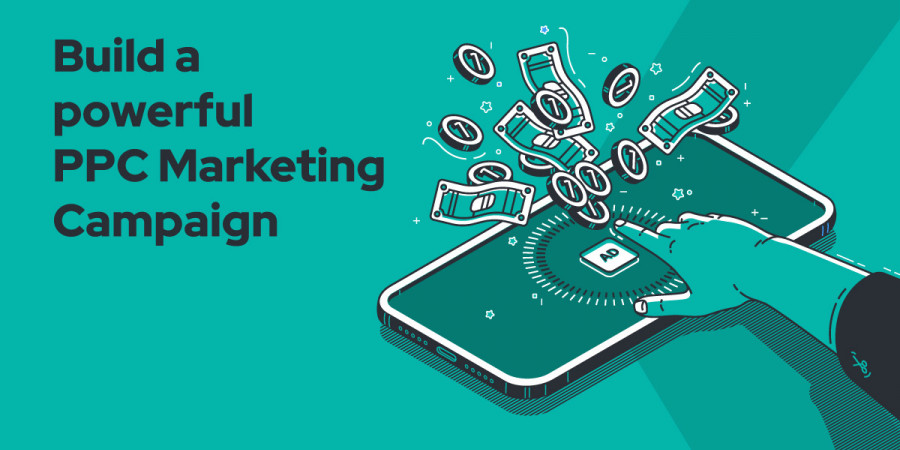
Build a Powerful PPC Campaign
1. Introduction
Building a powerful pay-per-click (PPC) campaign is not an end goal in itself. You have to devote time and resources to track its performance over a certain period of time. Just like any other digital marketing campaign, you have to measure and analyse its performance, which will ensure you drive the best results.
This guide aims to give you some of the best practices to kick off your campaign and optimize it from the get go! Let’s get into it.
2. Planning
The key to any successful project is the amount of planning carried out before-hand. PPC Campaign Planning involves a number of intricate steps, however, in this article we’ll highlight the 2 most important ones.
2.1 Competitive Analysis
Understanding your competitors' strategies before starting your own campaign can help you use the data and information you gather to achieve your goals quicker and stay ahead.
Firstly, define your competitor’s strategy. A good place to start is to analyse how their organic vs paid search is doing. Compare them, as this will help you find out the strategy of competitors in your niche. By observing which keywords they are targeting (using tools such as Keyword Gap) will help you give form to your PPC Campaign and provide information on where to focus your ad spend.
Secondly, evaluate the CPC in your area. Study the standard cost of advertising in your locality you want to target, analyze cost vs. demand and discover what works best in the industry. This will help you understand not only which locations you should target, but provide invaluable insight as to how much you should realistically be bidding for search terms.
Seasonality could play a key role in your PPC Strategy. Make sure you analyse the seasonal changes in your industry and if they’re having some impact on your competitors' use of ad spend. This is a vital step to planning your campaign ahead of time and will give you that important competitive advantage. It’s brilliant, you’re using your rival’s biggest failures to minimize potential pitfalls in your strategy!
Last but not least, make sure you think about mobile advertising before building your PPC Campaign. This is key to being able to target an even wider audience, that you wouldn’t be reaching if you were to only run desktop campaigns.
Make sure you research both platforms, but learn to differentiate between both, as users will have different behaviors when it comes to the platform they’re using. The user experience will also be different, so make sure your ad formats and message also differ.. Use the insights you can get from tools discussed above to provide the best paid search process to both types of users and appeal to the widest audience possible.
These guidelines will help you understand your competition and give you a foundation to start building your strategy.
2.2 Keyword Research
The foundation of a successful campaign is keyword research - choosing the right keywords to bid on that are most likely to result in clicks and conversions. Keyword research is 50% data and 50% skill. It’s about knowing the tools at your disposal, (Google Keywords Planner, Wordstream Keywords Tool, etc.) but also understanding your target audience and predicting which terms they are likely to type in the search engine. This is the ideal way to ensure your ads show when your customers are searching for the products and services you offer.
First brainstorm your keywords. Put yourself into your customers shoes, how would you search for your product? Make sure you start with broad keywords and then move to the specific ones. Finally, include variations and synonyms in the keyword list to make sure a wider range of your product is included.
Subsequently, expand and refine. We recommend you use one of the tools at your disposal (mentioned above) and choose keywords that have a high volume (the amount of users that are searching for them) and low competition (amount of advertisers bidding on them). This will ensure that your keywords are driving considerable traffic, without exceeding your budget.
Should you bash all of the keywords into one big list? Absolutely not! Make sure you organize your keywords. You want to make sure that you sort them into reduced target groups, where keywords are related to each other. These groups will become your ad groups. The more related these are, the better, as you’ll have the chance to measure performance, expand or decrease lists and develop highly specific and relevant ads. Organised ad groups have multiple benefits for your campaigns, such as more relevance, which leads to higher quality scores (meaning you’ll be able to reduce what you pay for each click and conversion).
Finally, don’t forget to add your negative keywords, these are the search terms that you don’t want your ads to show up for. The rationale of their use is to prevent your ads from showing up on search queries that are irrelevant or offensive.
3. Evaluate KPIs
After giving your PPC campaign enough time to run, it’s time to review your KPIs and analyse the wealth of information you have in your hands. There’s a wide array of tools and metrics you can use to measure the effectiveness of your campaign, but using the Google Ads dashboard is the best place to start.
3.1. Conversion rate
The ultimate goal for most PPC campaigns is conversion rate. This is the percentage of customers who perform your desired action (making a purchase, filling a contact form).
Tracking this metric is vital, as it can provide insight regarding your ad process, from the final step (making a purchase), to the click of the ad itself.
For this, a simple but effective process can be used. You divide the conversion rate in 3 types, primary, secondary and tertiary.
- Primary: Conversion goal (Making a purchase)
- Secondary: Progression down the sales funnel ( Landing on the desired page)
- Tertiary: Click on the Ad (Is it desirable?)
This method will tell you what step of the ad process you’re doing wrong, and how you can improve it.
3.2. Conversion value
If you’re running PPC ads to an e-commerce store, or you can quantifiably define how much a conversion is worth to you, then looking at and understanding your conversion value is incredibly important.
Whilst a particular campaign or ad group could be generating a lot of overall conversions, they may not be making you any money as the value of the item could be low. So whilst on the face of it everything seems to be working well, the reality is very different.
By optimising your PPC campaigns for the conversion value, you can ensure that you are bidding aggressively on the items that do make you money, and cutting out enormous amounts of wasted expenditure on the ones that are not.
3.3. Quality Score
Quality score will indicate whether the combination of your keywords, ads and landing pages are performing well or not. It will give you a score from 1 to 10 on how well Google views your ads, and how relevant your keywords are to your audience search queries. The better you do into these 2 aspects, the higher your Quality Score will be
The reason why you want a high quality score is simple - it becomes cheaper to advertise for the keywords you want. This translates into the following: more people see your ads, you pay less when someone clicks on them, you generate more conversions for your money. Great, isn’t it?
4. Build Landing Pages
Finally, you want something that will really set you apart from your competitors, something that ensures a potential customer converts on your website and not theirs.
That’s where landing pages come in. They are dedicated pages where visitors “land” after clicking on your ad. It is recommended that you create a landing page per ad, as it can bring benefits to your campaign, such as reducing cost-per-click.
Furthermore, the most successful PPC Campaigns are built with strong links between your audience targeting and landing page creation. The more fitting a landing page is to the demographic interest or search intent, the higher your Quality Score and the more likely you are to make a conversion.
Long story short, directing visitors that want specificity to your homepage is wasted ad spend. Visitors are less likely to end up making purchases and quality scores are bound to decrease. Make sure you spend time optimising your landing pages to suit your public.
This way you ensure that your PPC Campaign outperforms your competition every time, as well as delivering a fantastic experience to potential customers every time.
5. Final Words
Building a powerful PPC campaign requires a great deal of expertise and time, and whilst following a few steps will definitely help, there are many more stumbling blocks along the way. Getting your planning and research done beforehand, reviewing your KPIs and going a step further from competition will help you create an outstanding campaign but if you need any more help...you know where to find us.
Looking for a PPC boost? Drop us an email.







